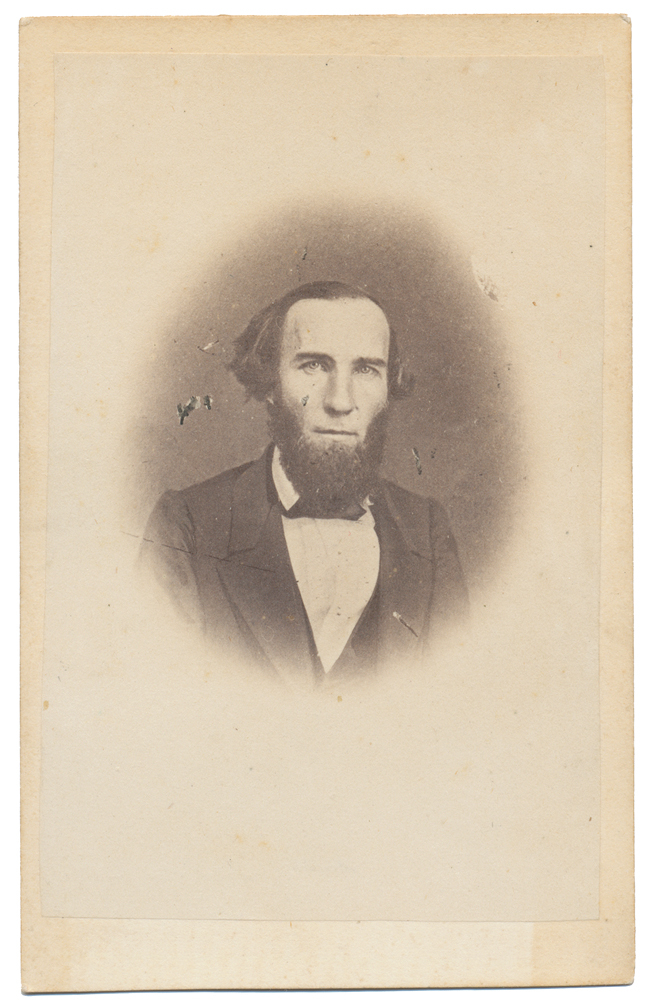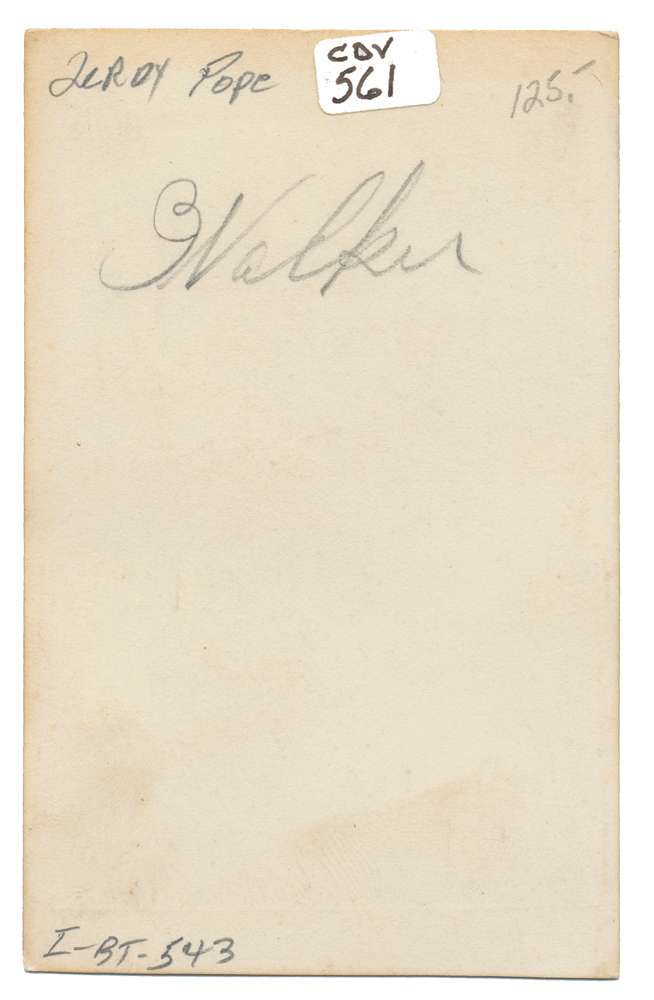site search
online catalog
CDV OF THE FIRST CONFEDERATE SECRETARY OF WAR – LEROY P. WALKER

Hover to zoom


$200.00 SOLD
Quantity Available: None
Item Code: 1138-543
Image is a vignette view of Walker in a dark civilian suit.
Contrast and clarity are good. Mount and paper are good.
Reverse is blank but does have a period pencil ID of “WALKER” with some collector information in pencil at top.
From the collection of the late William A. Turner.
Leroy Pope Walker was born near Huntsville, Alabama, July 28, 1817. He was admitted to the bar in 1838, was elected brigadier-general of Alabama militia, and in 1843 was elected to the legislature by Lawrence County.
In 1847 he represented Lauderdale County, and was chosen speaker of the House that year and in 1849. At the first election of judges by the people, in 1850, he was chosen judge of the Fourth Judicial Circuit, a position he resigned in 1853 to be returned to the legislature.
He then devoted himself to his law practice, and in 1860 was a delegate to the Charleston and Baltimore conventions, where he was earnest in opposition to Douglas. He shared the sentiment of his State regarding secession, and after the ordinance was passed, he was appointed by Governor Moore commissioner to urge the cooperation of Tennessee.
In February, 1861, he accepted the secretaryship of war in the cabinet of President Davis, and began without delay the discharge of those highly important and delicate duties which confronted him during the first weeks of Mr. Lincoln's administration. With wise foresight he penetrated the purposes of the Washington administration and announced that he had no confidence in Mr. Seward's "faith as to Sumter."
Telegrams between himself and Beauregard, at Charleston, grew frequent, and at the critical moment he directed the demand for the surrender of Sumter. During the excitement at Montgomery which followed the fall of Sumter, several fervid speeches were made, and Judge Walker, participating, spoke impromptu and in a somewhat boastful spirit.
His remarks, reported at the North with exaggerations, were construed as an official threat to float the Confederate flag over Boston and Philadelphia, and were used as an argument for the enlistment of Federal troops. Judge Walker continued in office until September 21, 1861-the period of enlistment-and then accepted a commission as brigadier-general, which he resigned in March, 1862.
After the war he resumed the practice of law at Huntsville, where his death took place, August 22, 1884. His devotion to the principles of the secession movement, fidelity to important trusts, and honorable conduct at all times, have placed his memory firmly in the esteem of his countrymen. (bio from Confederate Military History, vol. 1, p. 605). [ad] [ph:L]
~~~~~~~~~~~~~~~~~~~~~~~~~~~~~~~~~~~
THIS ITEM, AS WITH ALL OTHER ITEMS AVAILABLE ON OUR WEB SITE,
MAY BE PURCHASED THROUGH OUR LAYAWAY PROGRAM.
CLICK HERE FOR OUR POLICIES AND TERMS.
THANK YOU!
Inquire About CDV OF THE FIRST CONFEDERATE SECRETARY OF WAR – LEROY P. WALKER
Most Popular
Historical Firearms Stolen From The National Civil War Museum In Harrisburg, Pa »
Theft From Gravesite Of Gen. John Reynolds »
Selection Of Unframed Prints By Don Troiani »
Fine Condition Brass Infantry Bugle Insignia »
British Imported, Confederate Used Bayonet »
Scarce New Model 1865 Sharps Still In Percussion Near Factory New »
featured item
IDENTIFIED CONFEDERATE CAPTAIN’S FROCK COAT OF CAPTAIN PHARES WALDO SHEARER, 45th MISSISSIPPI, WITH 28-PAGE REMINSCENCES AND VETERAN’S BADGE- HE EXCHANGED SALUTES WITH THE WOUNDED JOHN BELL HOOD AT CHICKAMAUGA
This coat came directly out of the family along with a reunion badge and type-written copy of the officer’s 1906 reminiscences. The coat was formerly in the collection of Steve Mullinax, is accompanied by a file containing details of its… (1179-179). Learn More »


